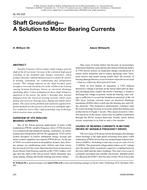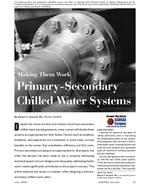All over the world, sustainability goals have become the foundation for any new building construction or for retrofitting of buildings. Due to need for large construction of new commercial and residential spaces, developing countries have the opportunity to progress towards green construction, while creating jobs and healthy, productive environment for the staff. However, in spite of building efficiency measures in developed and developing economies, global release of green house gases is increasing to the point where unmanageable climatic impacts are being experienced all over the world. Therefore, in addition to sustainability as a mitigation tool, a concurrent focus is necessary on making the buildings and their infrastructure more resilient to minimize adverse operational, safety, economic and social damage from climatic vulnerabilities. This requires adoption of innovative systems and technologies for making buildings more intelligent so as to provide and manage the building data that enables local and remote monitoring and analytics. Developing economies generally have hot and humid weather and therefore a greater emphasis is placed in cooling the spaces with passive elements, or package units for mechanical ventilation, and evaporative cooling. Interest on relevant technologies is to help improve operations of infrastructure and buildings during "Normal and Emergency" situations as well as to allow a quicker reconstitution of spaces, equipment and technologies after emergency situations. This requires metering, sensors. remote monitoring and analytic tools for data monitoring and compilation, managing energy and water use, benchmarking, retro-commissioning and reporting. Innovations in HVAC systems that can help the developing economies should be explored, such as, ductless cooling, "demand controlled ventilation", "dedicated outdoor air systems", "chilled beams", "variable refrigerant flow unitary systems", "geothermal heat pumps", magnetic bearing for chiller compressors, wireless sensor networks for data centers, solar heating and cooling systems, and adaptive Building Energy Management systems. Developing economies need to invest in capacity building whereby facilities managers, equipment suppliers and IT system administrators can collaborate to dynamically tune up or down the building operating parameters based on occupancy, time of day, and other human, environmental, and business considerations.
Citation: Developing Economies Conference, 2014
Product Details
- Published:
- 2014
- Number of Pages:
- 47
- File Size:
- 1 file , 7.1 MB
- Product Code(s):
- D-2014EHPB-10


